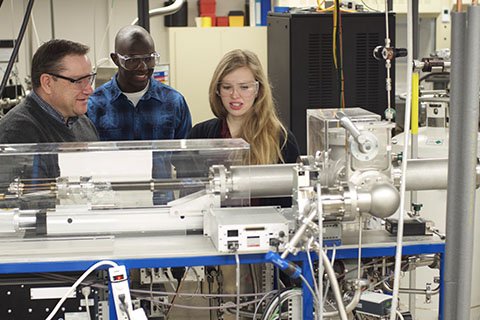Materials science and engineering
Materials scientists and engineers advance the science and technology of producing materials for nearly every product imaginable—from cell phones and artificial joints to automobiles and huge turbine rotors. They study a material’s properties and structure, evaluate its performance, and improve or customize it. Materials engineers also design reliable, economical manufacturing processes, and select the best material for the final product.
Careers
- Ceramic engineer
- Component engineer
- Metallurgical engineer
- Materials scientist
- Polymer engineer
- Process engineer
- Procurement engineer
- Quality control engineer
- Research and development engineer
- Consultant
What will I study?
The curriculum includes:
- courses on the fundamentals of engineering materials (metals, ceramics, polymers, semiconductors, composites) and the science of materials (thermodynamics, kinetics, electronic, magnetic, optical properties)
- hands-on learning in the Valspar Undergraduate Teaching Lab on materials structure, properties, performance, and processing
You may choose elective courses that focus on a specialty area. Because chemical engineering and materials science are combined in a single department, there are unique opportunities to pursue a double major and work with faculty on research projects.
The University of Minnesota’s Bachelor of Materials Science and Engineering is accredited by the Engineering Accreditation Commission of ABET.

